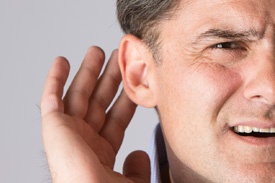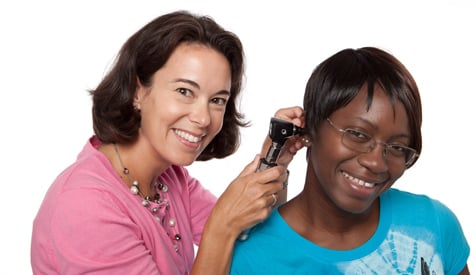Preparing to go home after a hospital stay is never easy, especially after having a stroke. It can be a very overwhelming process with new challenges in thinking, memory, and mobility. The length of your hospital stay after a stroke can range anywhere from a few days to months depending on the severity of the stroke and the support system in place at home. There are many feelings associated with going home, excited to be back home along with feelings of anxiety or worry.
Stroke Recovery: After the Hospital
Tags: Speech, Language, Communication, Support, Stroke, Brain Injury, talking, Speech therapy, Stroke recovery
Build Preschool Language Skills While Reading to Your Child
Do you find yourself wondering how to make reading a book with your child more meaningful? Do you have a hard time trying to get your child to WANT to read a book? Here are eight fun and easy ways to engage your child when reading a book and increase their pre-literacy skills and language skills.
Tags: Speech, Communication, reading, literacy, Learning, toddler, Speech therapy
Stroke Recovery: A Whole Life Approach
Welcome to the first of a blog series on stroke recovery resource information from Cleveland Hearing & Speech Center (CHSC). Topics of the series include first action steps following a stroke, benefits of speech therapy, communication strategies, tips for caregivers, and much more.
Tags: Speech, Language, Communication, Support, Stroke, Caregiving, Brain Injury, Voice, talking, Speech therapy, Stroke recovery
Build Better Reading Skills in Your Preschooler
Kick start your child’s pre-literacy and language skills by focusing on these areas while reading books with them. Children who develop these skills at an early age are more likely to become fluent readers and better spellers than children who do not. We define these skills as phonological awareness, which is the ability to recognize, manipulate, and use the sound structure of spoken language.
Tags: Speech, Language, Communication, reading, literacy, Learning, toddler, Early Intervention
Hearing Health Care and Medicare Advantage Plans
At Cleveland Hearing & Speech Center (CHSC) your hearing health care is of primary importance to us. In addition, we are here to help you investigate your options for any expenses associated with your care. Many insurance plans now cover hearing aids, including some Medicare Advantage plans. These plans may offer hearing aids at low or no cost to you. Traditional Medicare does not provide any hearing aid benefits.
Tags: Audiology, Hearing Aids, Hearing, Medicare
Speech-Language Concerns? Don't Wait - Evaluate!
“They’re still young - let’s just wait and see.” Coming from a pediatrician, this phrase holds a lot of power over parents worried about their child’s speech and language skills. The parents may have expressed a concern that their two-year-old hasn't started talking yet, is only saying a few words, or is very hard to understand. When the pediatrician brushes it off as not a big deal, the natural response from parents is to trust someone they consider an expert.
Tags: Speech, Language, Communication, toddler, talking, Early Intervention
Tinnitus and COVID-19
It is estimated that around 15% of Americans experience tinnitus. Tinnitus is described differently by different people. It has been described as a ringing, chirping, rushing air “whooshing” noise, hissing, or whining sound. No matter the description, it is a sound perceived in the head or ears without a true external environmental cause of sound being present. Often, people downplay tinnitus and consider it a mild inconvenience. Others are impacted much more seriously. If you only experience mild symptoms from time to time, you may learn to live with it. But if your tinnitus affects you on a daily basis, it can have an impact on your quality of life.
Tags: Hearing Aid, Audiology, Hearing Aids, Hearing, Hearing Loss Prevention, Hard of Hearing, Hearing Loss, "tinnitus", "ears", earplugs, Ear Pain, Ear Anatomy, Cochlear Implants, Ear Wax
Ear Wax – Cleaning, Removal, and Hearing Loss
Earwax or cerumen (from the Latin word "cera” meaning wax) is a normal, natural, necessary substance produced by the human ear. It is a sticky golden-colored substance produced by the outer cartilaginous third of the ear canal and it contains naturally occurring proteins that inhibit fungal and bacterial growth and keeps the sensitive skin of the ear canal lubricated and healthy. Earwax also helps trap dust and dirt and other foreign objects from entering the ear.
Tags: Hearing Aid, Audiology, Hearing Aids, Communication, Hearing, Hearing Loss Prevention, Hard of Hearing, Hearing Loss, "tinnitus", "ears", earplugs, Ear Pain, Ear Anatomy, Ear Wax
5 Tips for Better Hearing When Watching TV
Many people with hearing loss struggle to hear and understand the dialogue on television shows. A common comment from loved ones is that the television volume is louder than they prefer. Sadly, this sometimes leads to people isolating to different rooms to watch what they want at a volume that is comfortable.
Tags: Hearing Aid, Audiology, Hearing Aids, Communication, Hearing, Hearing Loss Prevention, Hard of Hearing, Hearing Loss
Baby Sign Language Improves Communication
Infant sign language really does deliver on its promise of improved communication. This is particularly appealing for new parents, given that there’s a well-recognized gap between what babies and toddlers want to say and what they are able to say. Sign language can help ease frustration between ages 8 months and 2 years — when children begin to know what they want, need, and feel but don't always have the oral motor verbal skills to express themselves. Basic sign language can help babies better express themselves as early as 8 or 9 months and it can mean decreased frustration (for both caregiver and child), promote earlier language skills and enhanced bonding with those who sign.
Tags: Speech, Language, Communication, American Sign Language, ASL, Learning, toddler, talking, Early Intervention, Communication Access, Baby Sign Language










-1.jpg)






